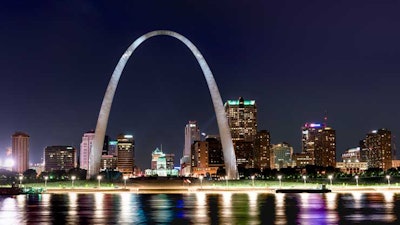
When St. Louis reopened on May 18, 2020, hotels, retail shops and restaurants wanted to translate the recommendations of public health officials into the operating realities.
“We mobilized around each sector a working group of industry practitioners and we crafted protocols for the sounding board, fact-checker and approval entity,” explains Brian Hall, chief marketing officer for Explore St. Louis. “We have been successful in issuing these protocols.”
Hall sounds more like an army sergeant, emergency room doctor or FBI agent more than someone who has spent 34 years in the hospitality and marketing industries. “I’m a CMO turned infectious disease expert in 30 days. I know enough to make me dangerous,” he jokes. “But our staff is obligated. This is the new normal. This is the way we’re going to be moving forward and we need to own it. We need to understand what’s going on.”
Global Biorisk Advisory Council Star Rating
As the events industry looks to rebound from the effects of COVID-19, destinations are presented a united front to convince travelers, especially meeting planners, that it’s safe to come. Many CVBs, including Visit Dallas and Discover the Palm Beaches (Florida), have worked with local venues to attain GBAC Star Accreditation, presented by ISSA, the worldwide cleaning industry association.
Experience Columbus (Ohio), notably, is taking that to the next level. As part of its “Live Forward” campaign, the CVB is coordinating a citywide safety effort featuring 85 central Ohio organizations and businesses pledging to put safety first. John Glenn Columbus International Airport, Greater Columbus Convention Center, Central Ohio Transit Authority, the Hilton Columbus Downtown, Hyatt Regency Columbus, Hyatt Place Columbus/OSU, Courtyard Columbus OSU, The Grand Event Center and Franklin Park Conservatory and Botanical Gardens were already seeking the GBAC STAR rating.
“As many of our partners prepare to eventually reopen their doors to large events, particularly in the meetings and conventions industry, they will be able to do so in a way that inspires confidence in visitors by securing this global gold standard in cleanliness,” says Sarah Townes, Experience Columbus vice president of marketing

Education Process
Back in St. Louis, Hall and his colleagues have used federal and local guidelines to spread public information. The result is on Explore St. Louis’ website for each attraction, hotel, retail shop, transportation, service, restaurant and more.
“It’s our job in the CVB to unite the community in the common mission to open safely and responsibly,” says Hall.
Customers are naturally watching and waiting–particularly those with events in summer or fall.
“We’ll be hosting meetings,” says Hall. “The virus will dictate how quick or slow we gather. We’re optimistic as a community about all of this. We’re hoping that new infections and hospitalizations will decline.”
St. Louis is now requiring meeting planners outline their operations for events and have it reviewed by public health officials. The CVB views each group as unique, meaning planners need to put together a plan and set of protocols for participants and staff. “We can’t conduct business as usual,” hall says. “You can’t do buffet sets. You can’t have a traditional coffee set. You can’t put 10 people around a table. There have to be safety and distancing protocols for everything you do.”
“The bar is high,” he continues. “We know our customers expect a lot from us and our staffs and all the organizations and that’s what will keep everybody safe. Can you imagine if big swaths of the U.S. have to retreat and reclose?”




.png?auto=format%2Ccompress&fit=crop&h=167&q=70&w=250)














